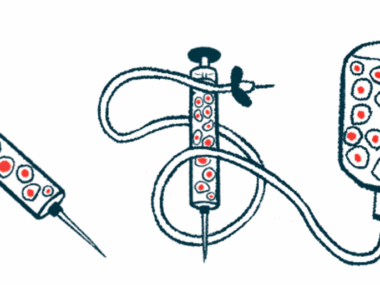Researchers, Michael J. Fox Foundation Propose New Roadmap for Trials
Written by |

A new roadmap for preclinical and clinical trials investigating compounds to treat and prevent Parkinson’s disease was proposed by a team of international academic and industry researchers, the Alpha-Synuclein Clinical Path Working Group, in conjunction with the Michael J. Fox Foundation for Parkinson’s Research.
The article, “A Proposed Roadmap for Parkinson’s Disease Proof of Concept Clinical Trials Investigating Compounds Targeting Alpha-Synuclein,” was published in the Journal of Parkinson’s Disease.
A global effort is underway to find interventional molecules that slow or stop Parkinson’s progression. These potential therapeutics focus on targeting the protein alpha-synuclein, a component of abnormal clumps — Lewy bodies — that are the pathological hallmark of Parkinson’s disease.
“With alpha-synuclein undoubtedly playing some role in Parkinson’s disease pathogenesis, and there being such a diverse portfolio of experimental therapies that target the protein, one can be optimistic and hope that one of the approaches will eventually be successful in slowing disease progression,” Patrik Brundin, MD, PhD, from the Van Andel Research Institute, Grand Rapids, Michigan, said in a press release.
In 2017, The Michael J. Fox Foundation convened the Alpha-Synuclein Clinical Path Working Group, made up of leaders in Parkinson’s research from academia and industry. This international group set out to expedite the discovery and development of therapeutics with recommendations on research and development for alpha-synuclein targeting therapies.
Taking into account years of research, this integrated paper specifies a complete translational framework for Parkinson’s disease, from guidelines for optimizing preclinical studies with animal models to the design and execution of clinical trials.
The report pinpoints gaps in the Parkinson’s disease biomarker toolkit — the use of molecules found in the body to aid in the identification and measurement of abnormal biological processes specific to Parkinson’s — that are limiting the ability to diagnose and monitor clinical outcomes.
Interested in Parkinson’s Disease research? Sign up for our forums and join the conversation!
During different stages of discovery and development, biomarkers can inform preclinical and clinical decisions. Refining the discovery and validation of alpha-synuclein-associated biomarkers could help fill these gaps.
In addition to diagnostic biomarkers, the group recommends expanding on the biomarker toolkit for monitoring clinical outcomes, such as biomarkers indicating that an intervention has engaged its intended target or that a response has occurred in a patient. These include developing and administering wearable devices that can measure biomarkers for Parkinson’s disease.
However, researchers advise that “before trust can be placed in biomarkers for decision-making,” several factors must be taken into account, such as the “analytical validation of the biomarker assays,” or understanding the predictive value considering the intended utility of the biomarker. For disease-modification biomarkers, scientists must validate whether a therapeutic can modify a specific biomarker in “careful, dose-ranging animal studies.”
“Multiple therapeutics have recently entered clinical trials, and critical human data that will inform all alpha-synuclein-based therapeutic development programs are on the horizon,” said lead author Kalpana M. Merchant, PhD, of Vincere Biosciences and the Department of Neurology, Northwestern University Feinberg School of Medicine, Chicago, Illinois.
“Although these efforts face many profound challenges, including the lack of key tools such as an alpha-synuclein-based imaging agent and the inherent difficulty of demonstrating clinical efficacy in slowly progressive neurodegenerative diseases, we remain optimistic that meaningful strides toward the ultimate identification and approval of alpha-synuclein-based disease-modifying therapeutics will be made in the near future,” Merchant said.





